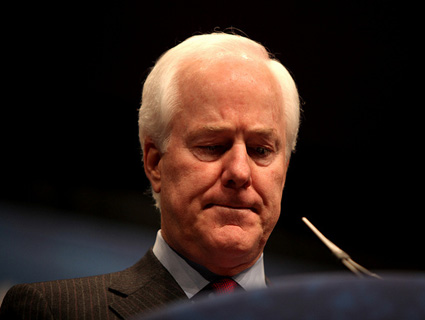The battle over Pennsylvania’s voter ID law, which a top state Republican bragged would deliver the state to Mitt Romney, is over—at least for now. The ruling that came down today in Pennsylvania court partially blocks implementation of the law until after the 2012 election.
Voting rights groups are mostly relieved by this result. The Advancement Project released a statement from Co-Director Judith Browne Dianis saying “We are very glad voters will not be turned away from the polls this November if they do have an ID.”
When you take a closer look however, the decision is not a total win for voting rights groups. The ruling states that poll workers are allowed to ask voters for photo identification, but those who don’t have it will be allowed to cast regular ballots, as opposed to provisional ones. The distinction is crucial: Many provisional ballots don’t end up being counted, and in a close election, provisional ballots that are thrown up could change who wins the state. That’s a big win for voting rights advocates.
At the same time, those advocates are most likely quietly concerned that the shape of the injunction could lead to voters being disenfranchised. Poll workers might become confused about whether voters are allowed to cast regular ballots if they don’t have photo identification. Confusion about what the injunction actually says could result in provisional ballots being cast instead of regular ones, or even voters being turned away from the polls because they lack photo ID.
If you trust number-crunchers like New York Times polling guru Nate Silver, Romney doesn’t have much of a chance of contesting Pennsylvania. But unless poll workers get adequate guidance about what the injunction actually says, some Pennsylvania voters could still end up disenfranchised in November.














